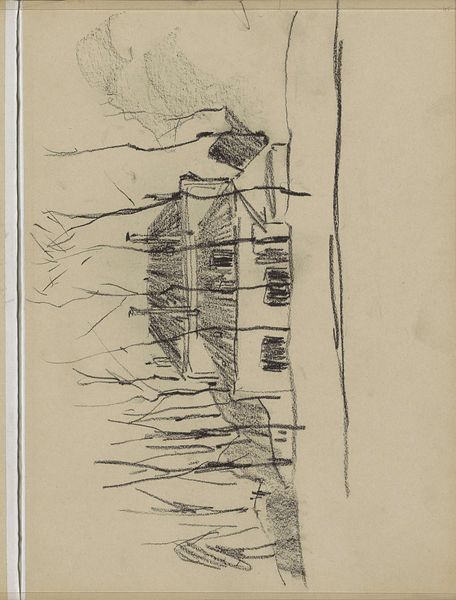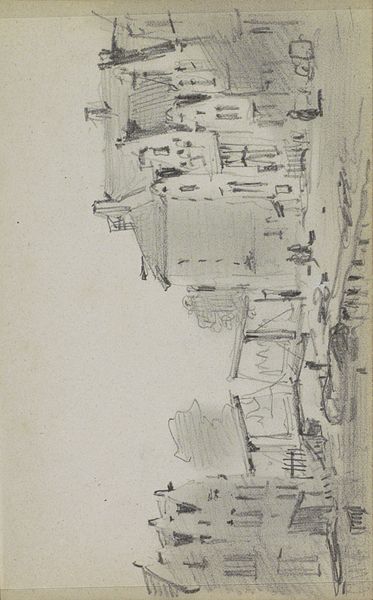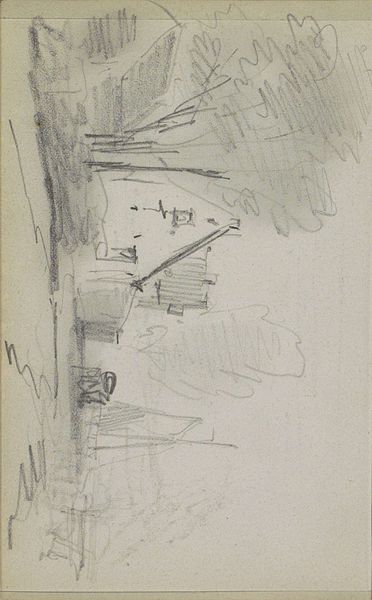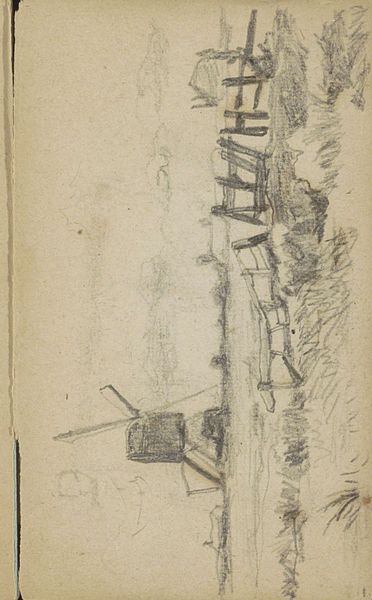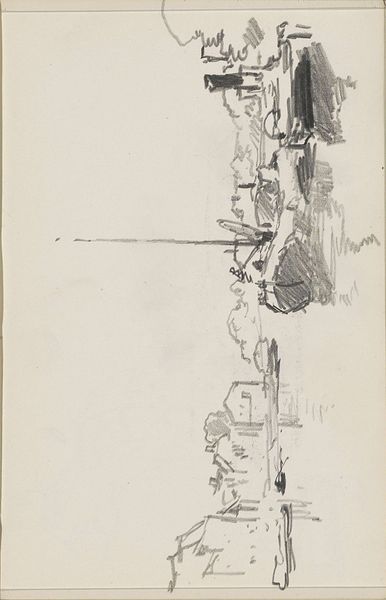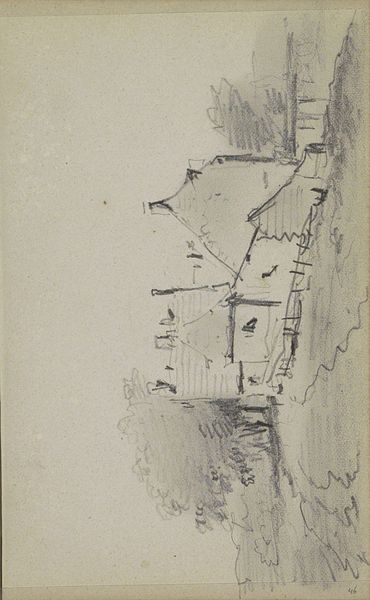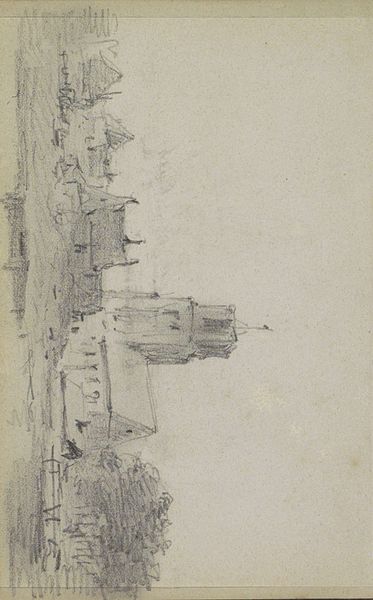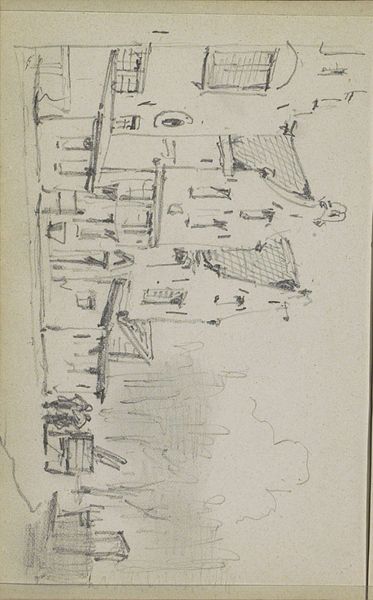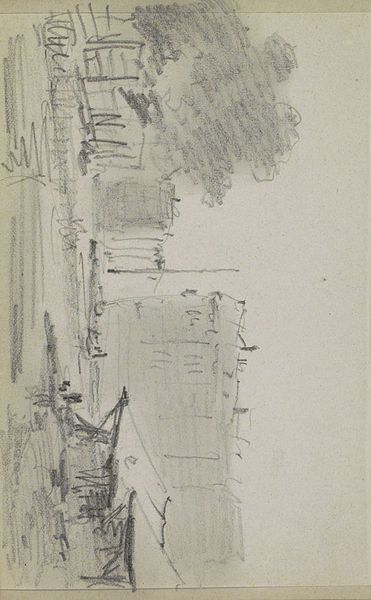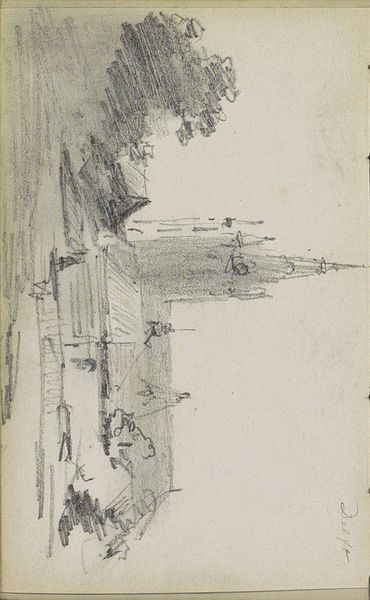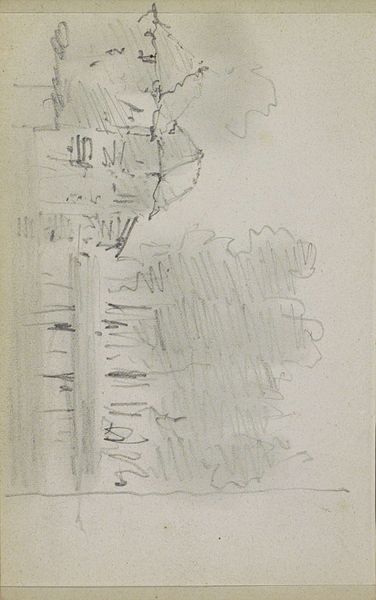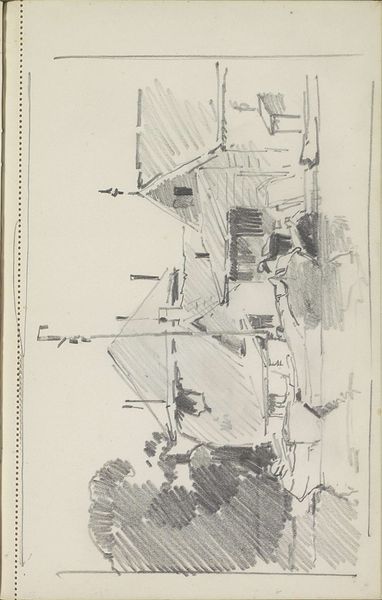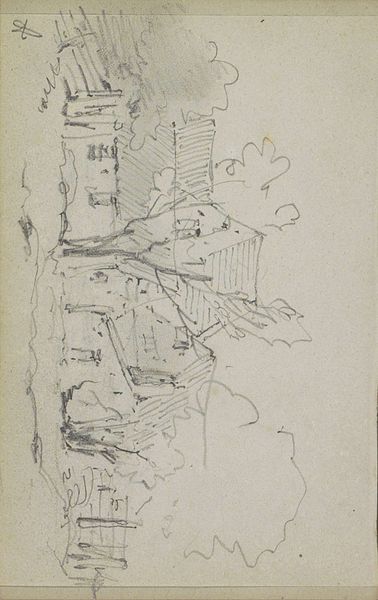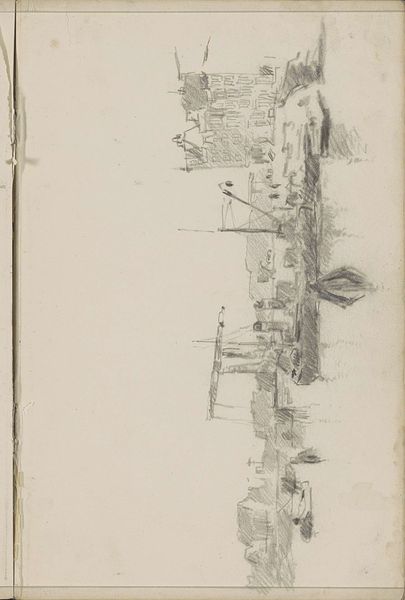
drawing, paper, pencil
#
drawing
#
landscape
#
paper
#
pencil
#
realism
Copyright: Rijks Museum: Open Domain
Curator: It looks like a child's quick sketch, but it also carries this melancholy silence. There is a whole world caught within the pencil lines, isn't there? Editor: Indeed. What we have here is a pencil drawing on paper titled "Stadsgezicht in Delft," which translates to "Cityscape in Delft," attributed to Adrianus Eversen and thought to originate sometime between 1828 and 1897. The realistic rendering is rather charming. Curator: Realism? It feels more like a forgotten dream of a city. Eversen's Delft feels empty and vulnerable. Are we peeking through someone’s window into this vision? Editor: Well, his other work includes painting of cityscapes with almost photographic precision. I wonder if this was preparatory work; sketches of this sort can tell us a great deal about the artistic process behind crafting an image that serves some symbolic function. Curator: Perhaps this sketch isn't trying to impress. Perhaps its intention is simply to invite contemplation, to consider how public spaces resonate with us, both aesthetically and emotionally. Do we know how Delft has been historically portrayed, through the artistic license of the Dutch Masters? Editor: Delft enjoyed a rather vibrant artistic representation through the centuries. I would say the institutional embrace of "Delft School" painters played a large role in cultivating this specific urban imagery as symbol for Dutch cultural identity. We could talk about how it all echoes through time... Curator: I am far more interested in how an image of "reality" can sometimes express the strangeness within. With all its supposed clarity, what feeling does Delft inspire here? The way that building hunkers down makes me shiver. Is this what urban anxiety looks like in pencil? Editor: Perhaps Eversen’s sketch prompts us to reflect on how places evolve. Curator: And on how our feelings towards them transform, right along with those bricks and mortar, into new landscapes in the mind... Editor: Indeed. It highlights how sketches often reveal far more about personal sentiment than finalized works that go on to achieve cultural cache and market validation.
Comments
No comments
Be the first to comment and join the conversation on the ultimate creative platform.
